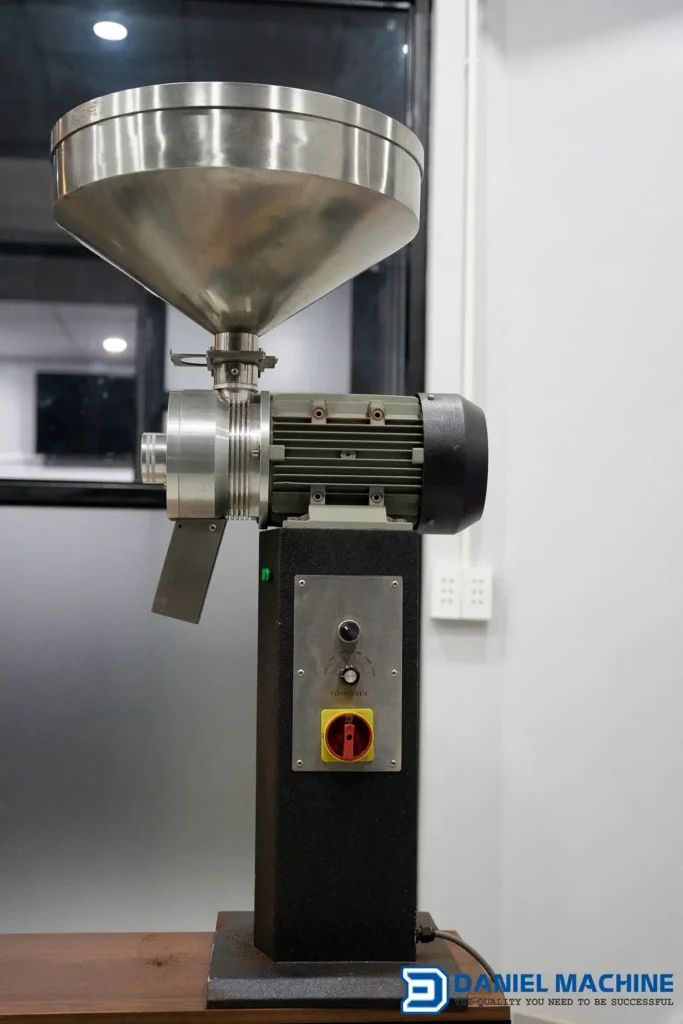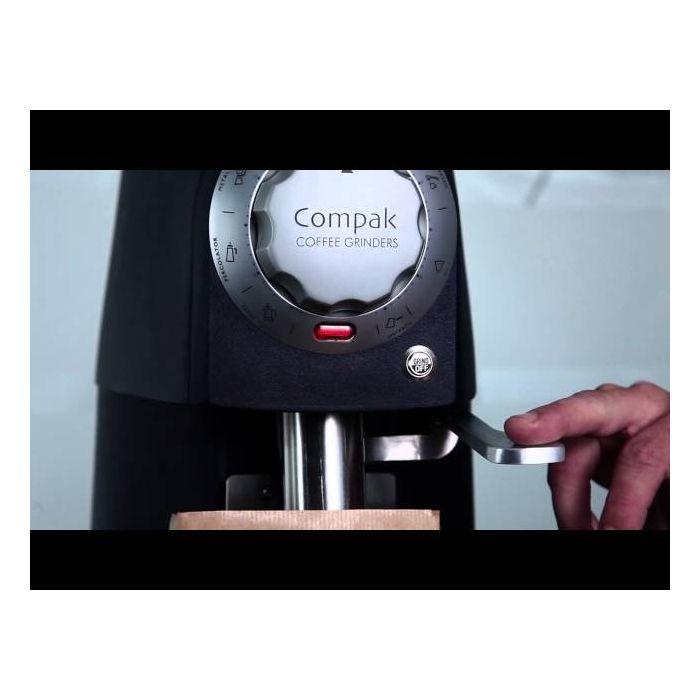Exactly How to Pick the Perfect Industrial Coffee Grinder for Your Company
Picking the perfect commercial coffee grinder for your business is a multifaceted choice that requires mindful consideration of numerous vital factors. It is necessary to assess your specific grinding needs, including the volume of coffee processed and the preferred grind consistency, as these components directly impact flavor and consumer satisfaction. Furthermore, comprehending the different sorts of grinders readily available can dramatically affect your functional performance. As you navigate these considerations, one should likewise weigh the effects of budget and upkeep. What various other factors could make or break your choice?
Assess Your Grinding Requirements
When selecting a commercial coffee mill, one need to initially examine their grinding requirements to make sure ideal efficiency and consistency. This preliminary evaluation includes understanding the volume of coffee to be processed daily, in addition to the wanted grind size for different brewing approaches. A high-capacity mill may be essential for businesses serving large amounts of coffee, while smaller sized operations might find a much more compact design enough.
Moreover, it is vital to consider the kinds of coffee beans being utilized, as various beans might require particular grinding techniques to achieve the most effective taste profile. For example, oily beans could require a grinder designed to manage such attributes without clumping or overheating.
Specialized coffee services usually demand specific grind sizes to enhance removal and flavor, making it crucial to select a mill that can deliver uniform outcomes. Assessing the available room and electric needs will certainly help in picking a mill that fits seamlessly right into your functional workflow.
Understand Grinder Kind
Comprehending the different sorts of industrial coffee mills is essential for making an informed choice that satisfies certain operational needs. There are mostly two classifications of mills: blade mills and burr grinders.
Blade mills utilize rotating blades to slice the coffee beans, leading to an irregular grind dimension - Industrial Coffee Grinder. While they may be more budget friendly, they are frequently not ideal for commercial applications where precision is crucial
On the other hand, burr mills provide an extra consistent work by crushing the beans between two surface areas. They can be additional categorized into level burr and conical burr mills. Flat burr mills use a constant work dimension and are commonly preferred for coffee preparation, while cone-shaped burr mills are versatile and can handle a variety of brew approaches, from coffee to French press.
When selecting a grinder, take into consideration the specific requirements of your business, including wanted work uniformity, manufacturing volume, and the sorts of coffee drinks you prepare to provide - Industrial Coffee Grinder. Each grinder kind has its restrictions and advantages, so understanding these nuances enables informed decision-making that lines up with operational goals
Evaluate Work Dimension Consistency
Attaining work size consistency is essential for generating premium coffee, as variations in fragment size can significantly affect extraction and flavor. When selecting a commercial coffee mill, it is vital to assess how well the equipment maintains uniformity in work size throughout various sets. Inconsistent work sizes can lead to unequal removal, leading to a cup that might taste extremely bitter or weak.
To analyze work dimension consistency, consider mills with features such as flexible grind settings and top notch burrs. Burr grinders, specifically, master generating consistent fragment dimensions contrasted to blade mills. The material and shape of the burrs play a crucial function, with stainless-steel and ceramic alternatives offering sturdiness and accuracy.

Think About Manufacturing Capability
In the hectic globe of coffee production, considering production capacity is critical for services intending to fulfill need without compromising high quality. The manufacturing ability of a commercial coffee grinder directly affects a firm's ability to meet orders efficiently, manage supply, and reply to rising and fall market trends.
When evaluating manufacturing capacity, it is vital to examine the grinder's outcome rate, normally measured in pounds per hour. This dimension needs to straighten with your service's forecasted sales quantity and growth targets. For instance, a coffee shop with a high turnover might require a mill that can process several hundred pounds daily, while a smaller operation might suffice with a reduced ability model.
Additionally, consider the kind of coffee being processed. Different beans and blends might influence grinding speed and effectiveness, requiring a mill qualified of dealing with diverse manufacturing demands. It's likewise worth considering the grinder's capacity to preserve regular high quality under high result conditions, as any kind of fluctuations can influence the check over here final item.
Ultimately, choosing a mill that matches your company's manufacturing capacity will guarantee you remain affordable and receptive to consumer expectations.

Budget Plan and Maintenance Variables
When reviewing the best commercial coffee upkeep, spending plan and grinder elements play a considerable duty in the overall decision-making process. A preliminary financial investment in a top notch mill can generate long-term benefits, but it's necessary to develop a clear budget that aligns with your company's functional demands. Take into consideration both the acquisition price and potential operational costs, such as energy usage and replacement parts.
Industrial coffee mills call for routine maintenance to guarantee optimal performance and durability. Assess the producer's suggestions for maintenance, including cleansing timetables and components replacement, as these will click resources affect lasting functional expenses.

Purchasing a grinder that is durable yet very easy to keep can save money with time. While lower-priced choices may be alluring, they might incur greater upkeep costs and reduced effectiveness. Ultimately, balancing first costs with long-term maintenance and functional efficiency will guide you to the very best selection for your company's coffee grinding demands.
Conclusion
Choosing the optimal commercial coffee grinder requires a thorough examination of grinding demands, grinder types, grind dimension uniformity, production ability, and budgetary considerations. By focusing on these variables, companies can make certain the acquisition of a reputable, reliable grinder that meets certain functional needs. A well-chosen grinder not only improves the top quality of the coffee produced however likewise adds to the general success and productivity of the enterprise. Long-lasting efficiency and upkeep ease must continue to be central to the decision-making process.
Specialty coffee services commonly require specific work dimensions to improve extraction and flavor, making it vital to choose a mill that can deliver uniform results. Flat burr grinders provide a constant web link work dimension and are generally favored for espresso prep work, while conelike burr mills are flexible and can manage a variety of brew techniques, from espresso to French press.
When picking a commercial coffee mill, it is vital to examine exactly how well the maker preserves uniformity in grind size across various sets. Burr mills, in certain, excel in creating uniform bit sizes contrasted to blade mills.Choosing the suitable commercial coffee grinder requires a comprehensive analysis of grinding demands, grinder types, grind dimension uniformity, manufacturing capacity, and monetary considerations.